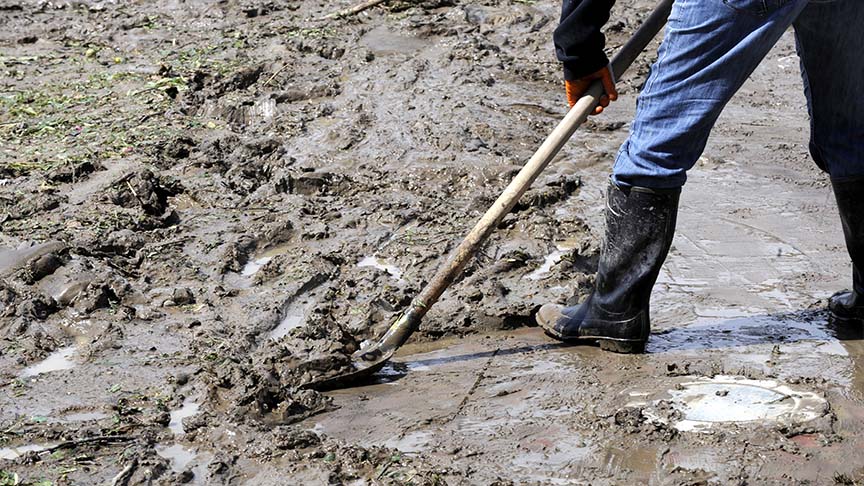
Tropical Public Health Services (Cairns) is advising residents to be aware of potential health risks following the severe weather event and flooding impacting Far North Queensland.
Tropical Public Health Services (Cairns) is advising residents to be aware of potential health risks following the severe weather event and flooding impacting Far North Queensland.
Tropical Public Health Services director Dr Richard Gair said there was an increased risk of infection if people came into direct contact with polluted waters, along with the potentially life-threatening infectious disease Melioidosis.
'Melioidosis is a potentially life-threatening infectious disease caused by the bacterium Burkholderia pseudomallei, a soil organism found across tropical regions,' Dr Gair said.
'This organism usually lives deep in the soil but comes to the surface when the soil is disturbed by heavy rainfall and flooding. The bacterium contaminates flood waters, meaning many more people can be exposed.
'To minimise health risks, do not swim in floodwater and ensure you and your children keep away from stormwater drains and creeks. Avoid wading even in shallow water, as it may be contaminated – if you must enter shallow flood water, wear solid boots or shoes for protection.
'If your house has been flooded, wear gloves and covered shoes when cleaning up, and treat any cuts immediately with antiseptic. Apply a protective dressing to the wound and see a doctor if injuries are serious.'
Dr Gair advised people with loss of power to avoid using generators or pumps in confined spaces to avoid risk of carbon monoxide poisoning; and to minimise fridge or freezer opening.
'Contaminated food or perishable foods that have not been refrigerated for greater than four hours should be discarded,' he said.
'Food, liquids or medicines that have come into contact with contaminated floodwater can also make you ill.'
Cairns and Hinterland Hospital and Health Service Acting Chief Executive, Cameron Duffy, said outpatient clinics and elective surgery appointments were gradually being reintroduced starting with the most urgent cases across Cairns, Atherton, Innisfail, and Mareeba hospitals.
'The health service has been notifying patients affected by postponements of their outpatient or elective surgery appointments,' he said.
'If your outpatient appointment has been affected, you will receive a text message from the health service informing you of the change.
'The health service will also contact you if your elective surgery appointment has been postponed. For people unable to access the hospital for their procedure, we will reschedule your appointment.'
'I would like to acknowledge the hard work of all our clinical and non-clinical staff who continued to work and put patient care first to ensure all of our hospitals remain operational throughout this weather event.
'Our thoughts are also with our staff and those community members who have been directly impacted by the flooding.'
For non-urgent medical care:
- Call 13 HEALTH (13 43 25 84) available 24/7
- Visit Queensland Health virtual ED: Virtual Emergency Department
- Make a telehealth appointment with an online GP
- Visit your community pharmacy
- In an emergency dial triple zero (000).
Melioidosis fast facts
Melioidosis can present in a variety of ways such as:
- Pneumonia, with or without sepsis, is the commonest presentation (fever, cough)
- Other presentations include:
- Skin abscesses and ulcers
- Abscesses of internal organs, particularly prostate, spleen and liver
- Septic arthritis or osteomyelitis
- Neurological infections are uncommon but do occur
- Melioidosis is rare in children in Australia
Melioidosis risk factors:
- Most cases occur in those with underlying risk factors, the most impacted include:
- Poorly controlled diabetes
- Heavy alcohol consumption
- Chronic lung disease
- Advanced age
- Impaired immunity
- First Nations people are over-represented in melioidosis cases.
Prevention after floods:
- Wear protective footwear in muddy areas
- Wear gloves when cleaning up
- Wear face masks when cleaning up mud
- Cover any cuts or sores with waterproof dressings
- Wash thoroughly after exposure to soil or muddy water